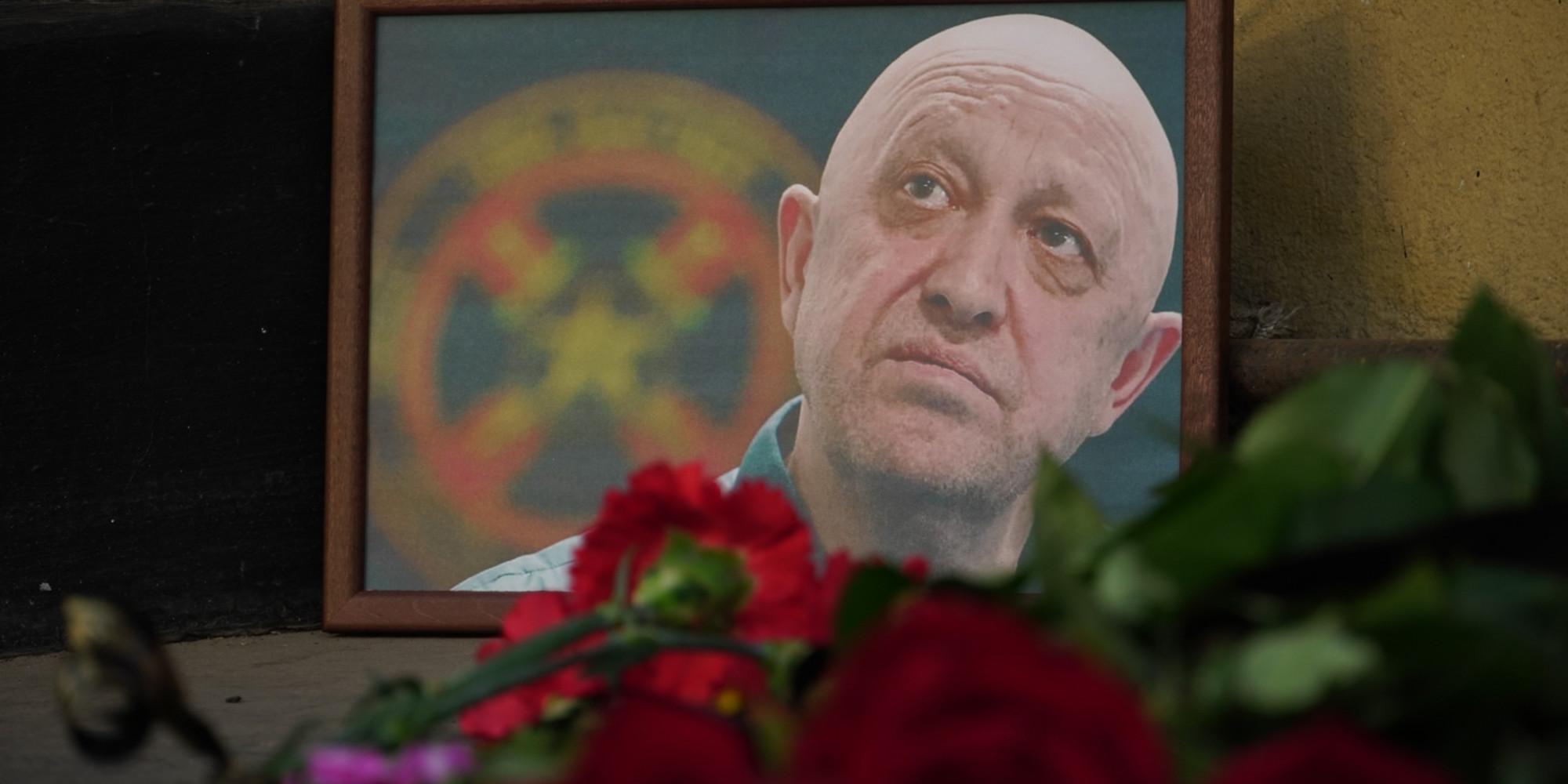Along with his charismatic leader Yevgeny Prigojine, Wagner lost his right arm Dmitri Utkin and his logistician Valery Chekalov. What permanently alter its operation. Russian far-right movements within the military sphere on the internet now mourn the group bitterly, notes analyst Lucas Webber, one of the co-founders of the Militant Wire research network.
“Prigozhin a brave character”
“They describe a political and military elite that was decadent, corrupt and detached from the reality of the front. By contrast, they respected in Prigozhin a courageous character, who was not afraid to criticize the military hierarchy and frequently visited his men in battle. “, he explains to AFP.
Some speak of retaliation. But these threats will be difficult to materialize in the short term, “given how the Kremlin applied to isolate Wagner and place him under high surveillance”. Because the group had gone too far, with its mutiny last June, to escape the wrath of Vladimir Putin.
The death of Prigojine today leaves the field open to the Russian president to rethink the structure of this parallel empire, which probably paid for believing itself too strong. And to redefine the Russian private military company (PMC) sector. “One lesson that Putin probably learned from the June mutiny is the danger of giving so much power and responsibility…to one man,” writes Catrina Doxsee, mercenary expert for the think-tank CSIS at Washington.
“If Russia should try to keep the PMC model for its foreign policy and security assistance, it is likely that the market will diversify” to prevent the emergence of another Prigozhin. Several groups are already in the ranks including Redut, Convoy, or even Patriot.
The Kremlin likely to play a double game
“For it to work, it requires several parameters, including having Putin’s ear with financial capacity, and having a tool of influence”, summarizes Lou Osborn, of the NGO All Eyes on Wagner , co-author of a book on the group to be published in France in September.
These companies “have much less presence and are less successful than Wagner but they follow the same construction”, she specifies, already noting the arrival within them of defectors from Wagner and their close links with the GRU, intelligence Russian military. With them, as with Wagner so far, the Kremlin is likely to play a double game, between control and support on the one hand, and sufficient distance on the other hand so as not to have to answer for each of their actions, in particularly in Africa.
“It is likely that the Russian state will exercise more direct control over PMCs in foreign countries, without fully admitting that they are under the direct authority of the Kremlin”, analyzes Aditya Pareek, of the private intelligence institute British Janes.
“Don’t Double Me”
But the method of Wagner’s future dismantling remains uncertain to this day. The process could include “renaming and companies in Wagner’s orbit could be broken up into separate entities” and then possibly nationalized or maintained as quasi-independent, Catrina Doxsee said.
Loyalty to the Kremlin will no longer be negotiable. “Wednesday night’s fireworks send a very clear message: + Don’t pass me, it’s a matter of survival +” slice Lou Osborn, ironically about the plane crash in Prigojine. But Moscow could not do without such a tool, which has proven itself for years, in Africa, in the Middle East but also in the war that Putin started in his neighbor. “The last tactical successes in Ukraine were Wagner,” recalls Maxime Audinet of the Military School Research Institute (IRSEM) in Paris.
“No other figure” as Prigojine
“Without repeating the same errors, the temptation seems real to preserve this operational model, that of irregular and flexible structures capable of emancipating themselves from the bureaucratic red tape encountered by official bodies to intervene where the State does not wish to directly engage. “. The transition, however, will not be clear even if Prigojine is no longer there to resist the dismantling of his empire, the work of a lifetime.
“Prigozhin had great freedom of action, great capacity for work, obvious enthusiasm, certain organizational skills and he had no appetite for personal enrichment,” said Denis Korotkov, a Russian investigative journalist. “I don’t see any other figure like him.”
